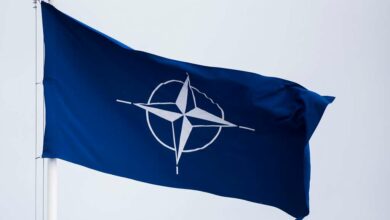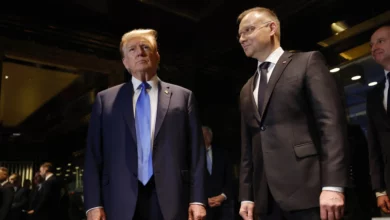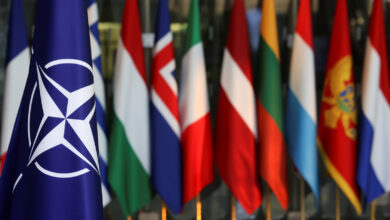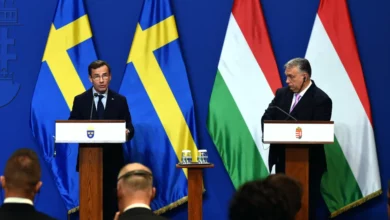Rome — Ministers from the NATO-backed coalition against Libyan leader Muammar Qadhafi meet in Rome on Thursday seeking ways to get money to rebels who are desperate to buy food and medicine and shore up their administration.
As the conflict in Libya has ground into stalemate, the rebel Transitional National Council, which controls the region of eastern Libya around Benghazi and has been recognized by both France and Italy, has appealed for loans of up to US$3 billion.
But efforts to unblock state assets frozen in overseas accounts, or to allow the rebels to get past UN sanctions that prevent their selling oil on international markets, have been held up.
"It's not easy. There are Libyan assets that are frozen and for legal reasons unfreezing them is difficult," French Foreign Minister Alain Juppe told France 24 television on Wednesday.
Thursday's meeting of the so-called Libya Contact Group will bring together foreign ministers from countries including France, Britain, the United States, Italy and Qatar as well as representatives of the Arab League and the African Union.
Mahmoud Shammam, chief spokesman for the transitional council, said the rebels urgently needed US$1.5 billion to cover immediate running costs.
"We need this for medical supplies, for food supplies, to keep the minimum functions of normal life — electricity, running hospitals etc," he said.
Other rebels have spoken of needing US$2-3 billion to try to shore up an administration created from scratch with no substantial sources of funding, and to pay the state salaries on which most people depend.
"NO ENVELOPE OF CASH"
Italian Foreign Ministry spokesman Maurizio Massari said the meeting was unlikely to come up with a sum of money. "This is not a pledging conference. There will not be an envelope," he told reporters in Rome.
"What is essential is that the temporary mechanism is set up, the principle is agreed upon tomorrow, and this will be the major achievement of the meeting."
Juppe said the Rome meeting would also try to build contacts with defectors from Qadhafi's government and officials who want to leave it. "There are a lot of officials from Tripoli who want to talk. We are going to try to coordinate," he said.
The meeting is not expected to address military issues but ministers are likely to restate their confidence in the NATO mission, despite a lack of progress since the initial airstrikes drove Qadhafi's forces away from Benghazi in March.
Signs of impatience with the coalition's lack of coherence have emerged. French President Nicolas Sarkozy is planning a separate conference of the "friends of Libya" in the coming weeks to discuss the future of the country.
Of particular concern is the fate of civilians in the surviving pockets of resistance to Qadhafi in cities in western Libya such as Misrata and Zintan.
An aid ship defied shelling by Qadhafi's forces on Wednesday to rescue African and Asian migrant workers from Misrata but was forced to leave behind hundreds of Libyans desperate to flee the fighting.
Aid workers scrambled to embark the migrant workers, along with journalists and the wounded, on the ship bound for rebel-held Benghazi as the port came under bombardment.
"The bombing has caused so many casualties among Libyans and people of other nationalities waiting for evacuation," Gemal Salem, a rebel spokesman, told Reuters. "So far we have five killed and ambulances are rushing to the scene."
Another rebel spokesman, Abdelsalem, said the five dead were African migrant workers.
The Red Star One, sent by the International Organization for Migration, had been waiting for days to enter port because of mines laid by Qadhafi's men. The IOM had hoped to evacuate 1000 people but the ship had to leave with only 800 on board.
About 12,000 people have so far been rescued from Misrata, where food and medicines are running short and government shelling and snipers have killed hundreds of people.
The United States on Wednesday condemned the continued shelling of Misrata and called on Qadhafi's forces to permit the IOM to resume evacuating wounded people from the port.
STATIC FRONT LINE
The insurgents trying to topple Qadhafi after 41 years in power had hoped for a swift victory, akin to the ousting of the leaders of neighboring Egypt and Tunisia by popular uprisings.
But his better-equipped forces halted the rebels' westward advance from Benghazi, and the front line is now largely static.
The United States, Britain and France, leading a NATO air campaign, say they will not stop until Qadhafi is toppled.
International Criminal Court prosecutor Luis Moreno-Ocampo said he would request three arrest warrants for the killing of pro-democracy demonstrators after amassing evidence including photographs, video and testimony by government insiders.
"Crimes against humanity have been and continue to be committed in Libya: attacking unarmed civilians including killings and persecutions in many cities across Libya," he told the UN Security Council in New York.
He did not name his suspects but several UN diplomats and independent rights experts said Moreno-Ocampo might want Qadhafi's arrest.
British Foreign Office Minister Alistair Burt said Britain was working to close any loopholes in the sanctions on Libya.
"Consistent efforts have been made in recent weeks to work with oil suppliers and the infrastructure of oil in order to cut off the opportunities of selling it and the money going back to the Qadhafi regime," he told Reuters.




